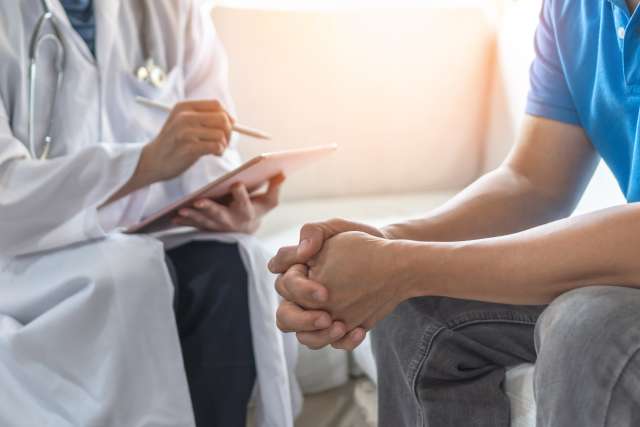The next time you make a routine visit to the doctor’s office, regardless of the reason, don’t be surprised if you’re asked questions about your anxiety level. In the face of what has been termed a national crisis in mental health, an influential U.S. panel of experts in evidence-based medicine and prevention has recommended that all asymptomatic adults ages 19 through 64 be screened for anxiety disorders by their primary care provider.
The new recommendation, finalized in June, comes from the U.S. Preventive Services Task Force, an independent body consisting of 16 primary care clinicians who are appointed by the U.S. Department of Health and Human Services and charged with making evidence-based recommendations designed to keep Americans healthy through prevention and early detection.
Although the task force’s recommendations aren’t mandatory, they carry a great deal of weight and tend to be widely adopted by health care providers.
Carol Mangione, MD, a UCLA Health physician who chaired the task force at the time it developed the new guideline and currently serves as immediate past chair, says many people struggling with anxiety don’t bring it up with their primary care clinician — often because they don’t realize their symptoms might be severe enough to be diagnosed with an anxiety disorder that is likely to improve with therapy or medication.
“Studies show that only about 11% of people get treatment for anxiety disorders in the first year they’re having symptoms, and many suffer for longer than that before their anxiety ever comes up in a medical setting,” says Dr. Mangione, chief of the Division of General Internal Medicine and Health Services Research at the David Geffen School of Medicine at UCLA.
At some point in their lives, approximately 26% of men and 40% of women experience an anxiety disorder, Dr. Mangione notes. She explains that generalized anxiety is marked by fear and worry at a level that impedes one’s ability to function.
“We all have moments when we’re anxious, but when those symptoms start to disrupt your life, that’s when most people are more likely to get diagnosed,” she says.
Because generalized anxiety disorder is particularly common during pregnancy and the postpartum period, the task force called special attention to the importance of screening asymptomatic persons during that time.
Dr. Mangione notes that screening, which can use any of several standardized questionnaires, is brief and not designed to definitively diagnose patients, but rather to identify those who should be referred to a mental health professional — both to confirm the diagnosis and to consider treatment with medication and/or psychotherapy.
Although the task force’s review of the evidence to support asymptomatic anxiety screening began before the onset of COVID-19, Dr. Mangione points out that the social isolation, fear of becoming sick and upending of lives during the pandemic are all risk factors for anxiety, depression and other mental health problems.
“If ever there were a time when we should be making sure people don’t have untreated or undiagnosed anxiety, this is it, because as a population we’ve been very stressed with what’s been going on the last few years,” Dr. Mangione says.
The task force’s recommendation to screen asymptomatic adults ages 19-64 for anxiety disorders in primary care settings comes on the heels of the guideline it issued last year to screen asymptomatic children ages 8-18. The task force has previously recommended screening asymptomatic adults for depression.
Dan Gordon is the author of this article.




